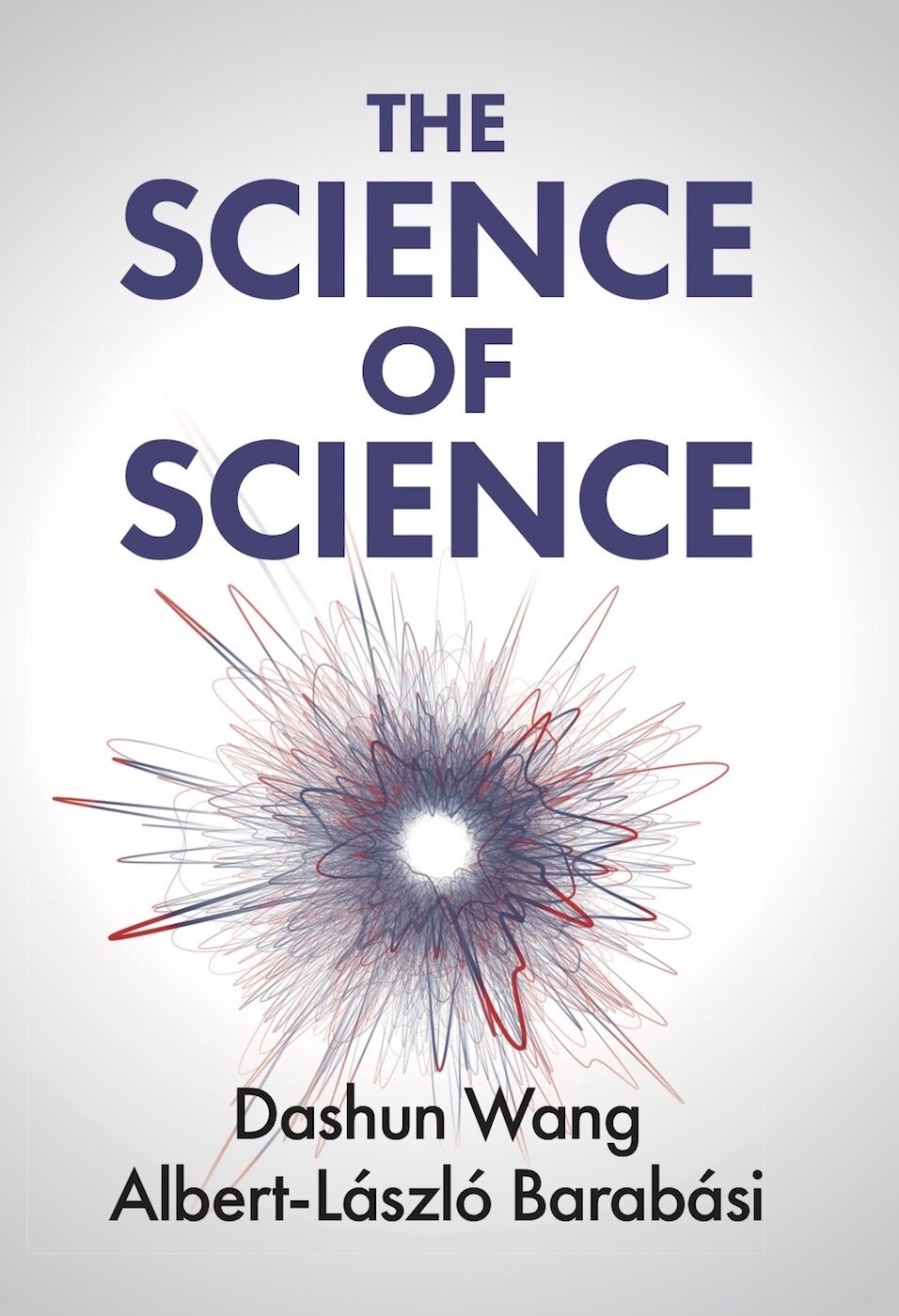Book
The Science of Science
This is the first comprehensive overview of the “science of science,” an emerging interdisciplinary field that relies on big data to unveil the reproducible patterns that govern individual scientific careers and the workings of science. It explores the roots of scientific impact, the role of productivity and creativity, when and what kind of collaborations are effective, the impact of failure and success in a scientific career, and what metrics can tell us about the fundamental workings of science. The book relies on data to draw actionable insights, which can be applied by individuals to further their career or decision makers to enhance the role of science in society. With anecdotes and detailed, easy-to-follow explanations of the research, this book is accessible to all scientists and graduate students, policymakers, and administrators with an interest in the wider scientific enterprise.
Download the book for free
This is the submitted version of the book. The printed version was published by Cambridge University Press in 2021. The website will soon be expanded to include datasets and slides to teach the materials.
Cite the book: bibtex, Endnote, txt, or word
Found an error in the published version? Please let us know!
INTERNATIONAL EDITIONS
Praise
“Analyzing quantitative aspects of science with state-of-the-art tools, Wang and Barabási have written an insightful and comprehensive book that will become a must-read for all scholars interested in science.”
“Wang and Barabási’s book is a manifesto for the science of science domain. Graduate students (as well as their mentors) owe the authors a debt of gratitude for this impressive synthesis of what is a fast-evolving field of research.”
“In their engaging book, Wang and Barabási take a fresh look at the science of science. By the time the final, forward-looking chapter ends we are hooked on all the correlations and predictions, and so it is only fitting that we are invited to join in, to help shape the field which is likely to be driven by a human-machine collaboration.”
“Science is a revered innovation machine. Imagine if science could be even better. Wang and Barabási use the tools of science to reveal rare insights about how scientific innovations and breakthroughs are discovered fastest. It’s a book that every boundary breaker, scientist, innovator, investor, and inventor will learn from and prize in their work.”





